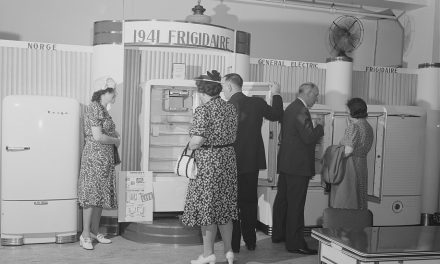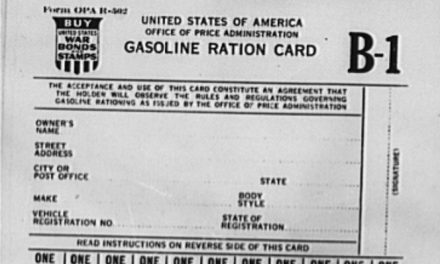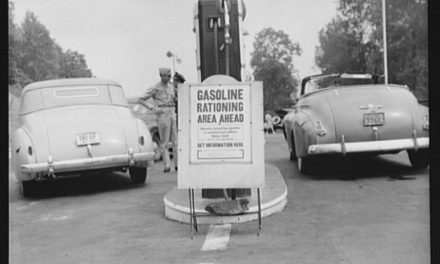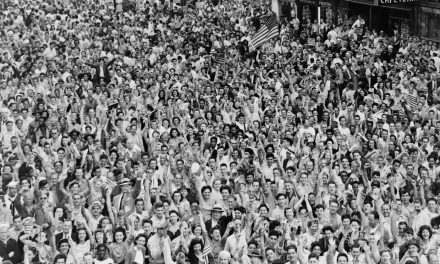In his first State of the Union Address since America went to war, President Franklin D. Roosevelt made it clear earlier that the country will be on the offensive in this global conflict.
Speaking in front of Congress on Jan. 7, the president assured those before him, as well as the American people, that the United States is ready for war.
“I am proud to say to you that the spirit of the American people was never higher than it is today – the Union was never more closely knit together – this country was never more deeply determined to face the solemn tasks before it,” he said. “The response of the American people has been instantaneous, and it will be sustained until our security is assured.”
It was only a year ago that Roosevelt was preparing the country for the possibility of war. The United States had not yet officially entered the war, but the nation was showing support for the Allies, sending weapons and other goods across the Atlantic to help combat the Axis aggressors.
Roosevelt said it would be those aggressors who determined when the United States would enter the war. That time has arrived.
“When the dictators are ready to make war upon us, they will not wait for an act of war on our part,” Roosevelt said in his 1941 State of the Union Address. “They – not we – will choose the time and the place and the method of their attack.”
Roosevelt’s prediction came true on Dec. 7, 1941 when the Japanese launched a surprise attack on the Pearl Harbor Naval base in Hawaii. The act immediately forced the United States into war as they aligned with Britain and the communist-controlled Soviet Union.
Now, Roosevelt is prepared to take on the Japanese, as well as Adolf Hitler’s Nazi Germany and Benito Mussolini’s fascist Italy. In order to do so, the Commander-in-Chief is calling upon America’s allies.
“Our own objectives are clear; the objective of smashing the militarism imposed by war lords upon their enslaved peoples the objective of liberating the subjugated nations—the objective of establishing and securing freedom of speech, freedom of religion, freedom from want, and freedom from fear everywhere in the world,” Roosevelt said. “We shall not stop short of these objectives—nor shall we be satisfied merely to gain them and then call it a day. I know that I speak for the American people—and I have good reason to believe that I speak also for all the other peoples who fight with us—when I say that this time we are determined not only to win the war, but also to maintain the security of the peace that will follow.”
The president’s speech drew praise from most everybody, as Republicans and Democrats alike made it a point to support the liberal Roosevelt in a time of war.
Sen. Arthur Vandenberg (Rep., Mich.) saw the address as “a tremendous dedication to victory, which must be won not only with all our resources, but with all the efficiency which can be put to work.”
Sen. Wayland Brooks (Dem., Ill.), appreciated Roosevelt’s attempt to bring the country together.
“The president’s address was expressive of the unity and determination of the American people to win a war thrust upon us,” he said.
Sen. Brown (Dem., Mich.) found the president’s speech to be intimidating. He hopes America’s enemies get a chance to hear Roosevelt’s forceful, confident tone.
“I hope they hear that speech in Japan and Germany,” he said.
Sources:
“Text of President Roosevelt’s Message to Congress” (January 7, 1942). Chicago Tribune, p. 4.
Associated Press, “Senator Hopes Nazis and Japs Heard it, Too.” The Washington Post, Jan 07 1942, p. 7.
Thefilmarchives. “Franklin D. Roosevelt: State of the Union Address (1942).” YouTube <https://www.youtube.com/watch?v=TLM7P9fa6ww>, accessed Dec. 13, 2016.






when was this article actually published?